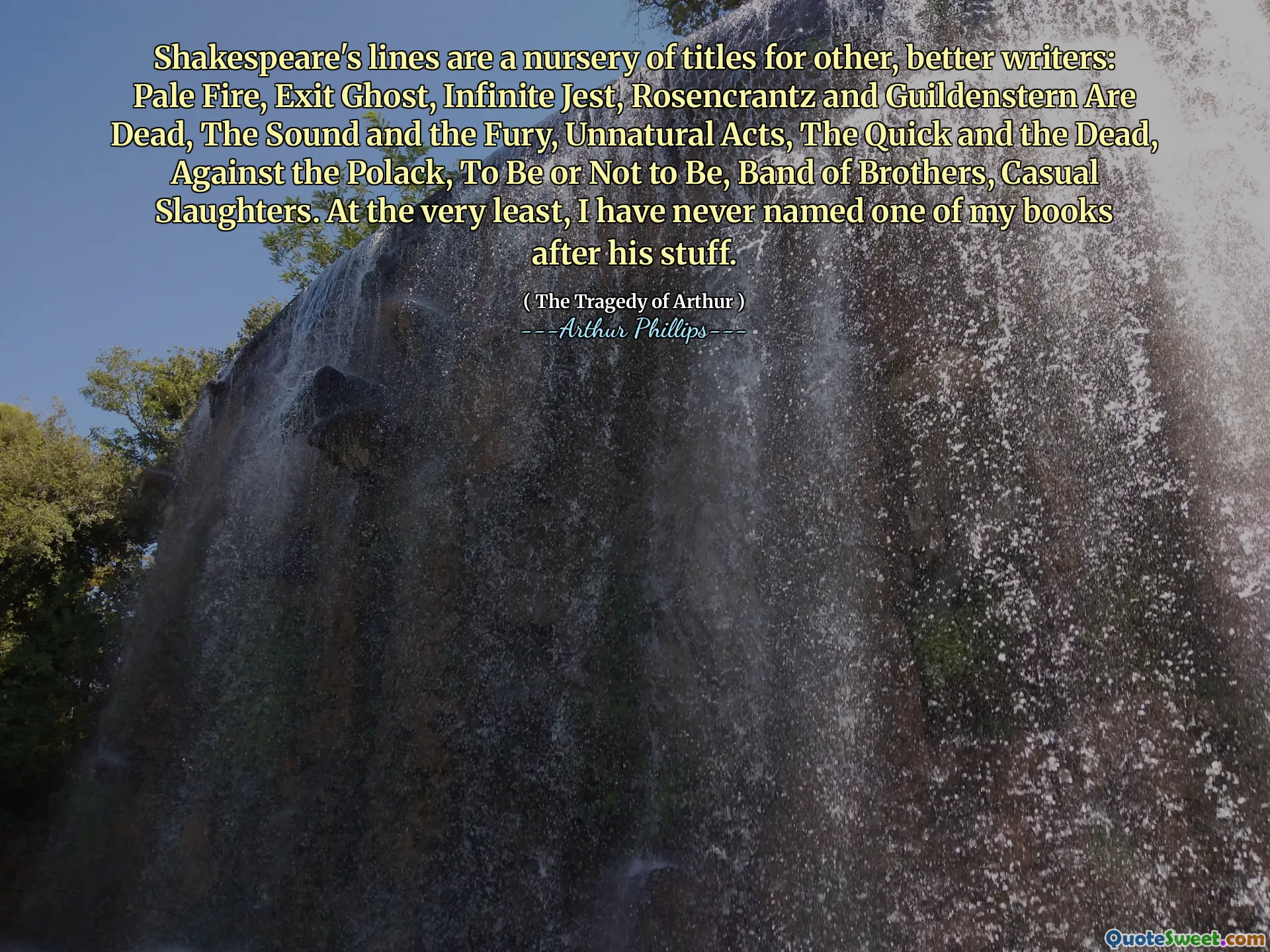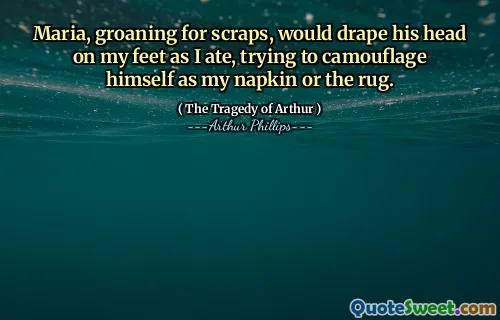
Shakespeare's lines are a nursery of titles for other, better writers: Pale Fire, Exit Ghost, Infinite Jest, Rosencrantz and Guildenstern Are Dead, The Sound and the Fury, Unnatural Acts, The Quick and the Dead, Against the Polack, To Be or Not to Be, Band of Brothers, Casual Slaughters. At the very least, I have never named one of my books after his stuff.
This quote offers a fascinating commentary on the immense influence William Shakespeare has had on the literary world. It suggests that many iconic works by modern and postmodern writers draw directly from Shakespeare's phrasing, themes, or character names — effectively using his lines as seedbeds for new stories and titles. The phrase "a nursery of titles" is particularly evocative, likening Shakespeare’s work to a fertile ground where other literary creations are born and nurtured.
What stands out is the perspective of the speaker, Arthur Phillips, who admits to never having named any of his books after Shakespeare’s lines, implicitly acknowledging a conscious choice to differentiate his works or perhaps to resist the overwhelming shadow that Shakespeare casts. Yet, the acknowledgment of numerous famous titles arising from Shakespeare's influence also underscores how profoundly embedded Shakespearean language remains in the cultural and literary fabric.
The range of references — from "Infinite Jest" by David Foster Wallace to "Rosencrantz and Guildenstern Are Dead" by Tom Stoppard — highlights the versatility and timelessness of Shakespeare's influence across genres and eras. It prompts reflection on originality and homage in writing: how new works often spring from an intertextual dialogue with the past. Shakespeare's works are not merely relics but living texts that inspire reinterpretation and creative expansion.
In essence, this quote encapsulates the paradox of literary innovation, where the greatest creativity frequently relies on, or dialogues with, the foundational works of predecessors. It reminds us how history and culture shape artistic expression, and encourages us to appreciate the lineage of ideas that evolve across generations.







